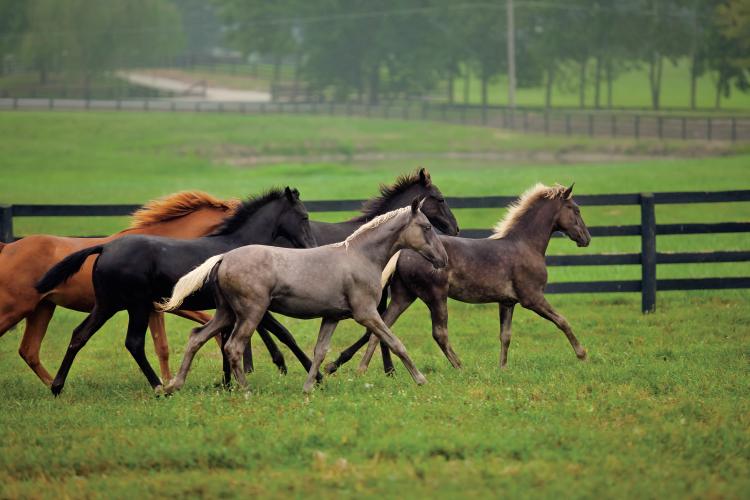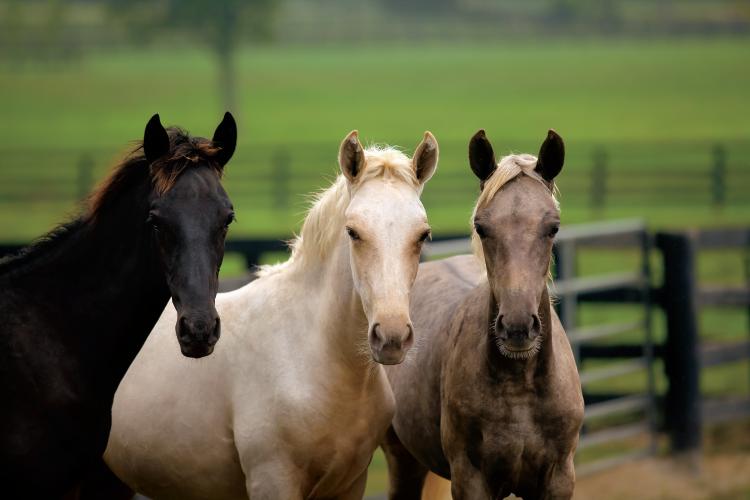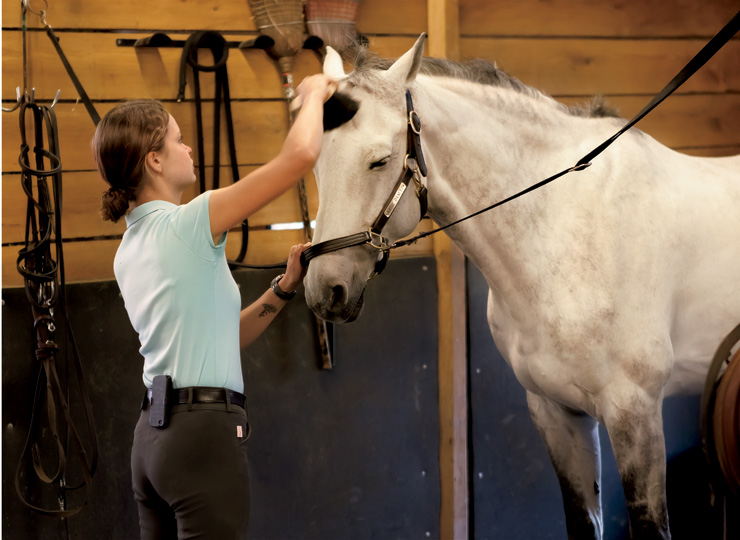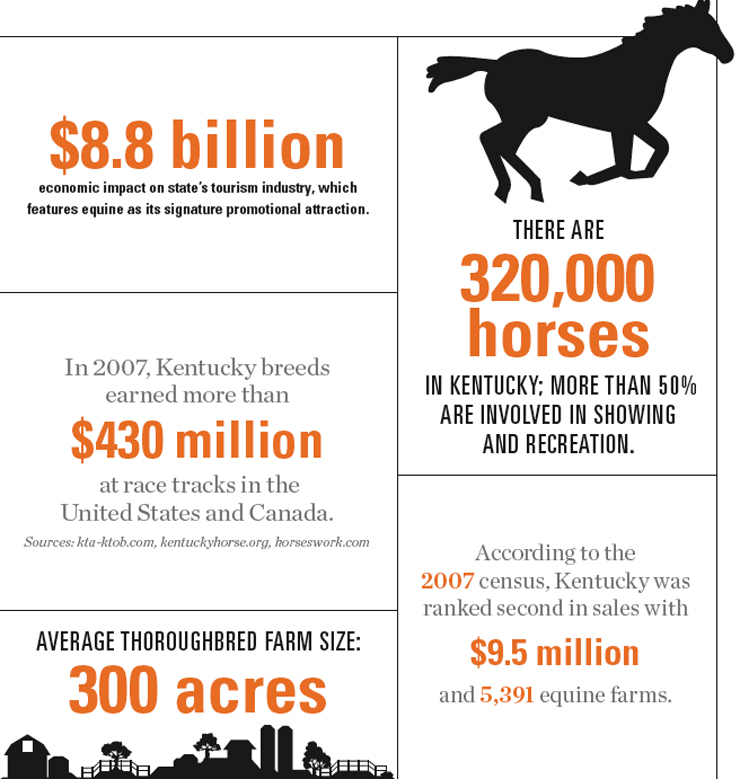Home > Kentucky > Kentucky Crops & Livestock > Kentucky’s Equine Industry Rides Beyond Thoroughbreds
Kentucky’s Equine Industry Rides Beyond Thoroughbreds

Derek Braun learned to ride horses in New York, moved to Florida to train and traveled across the country and the world to compete in – and win – show jumping championships. When it came time for him to find a place he could call home, Braun and his wife, Gwen, chose Kentucky. Horses were the reason.
“This is truly a place where not only do we feel completely at home, but we also have all the opportunities to build a successful, high-caliber business in the horse industry,” says Braun, who founded Split Rock Farm, a show jumping facility, in 2007.
Kentucky’s horse industry includes not only sport horses, the kind Braun trains and rides, but also thoroughbreds and recreational horses that together make up the state’s $4 billion equine industry. With an estimated 320,000 horses in the Commonwealth, breeding, raising, training, showing, racing and just plain enjoying horses is big business.
According to the Kentucky Horsemen’s Benevolent and Protective Association, horses are a key driver of the state’s $10 billion tourism industry, and generate or support between 80,000 and 100,000 direct and indirect jobs in the state. Their economic impact includes monies directly related to breeding and selling the animals, as well as expenses for their care, such as local veterinarians, feed stores, and truck and trailer dealers. Hotels, restaurants and other businesses also benefit from local races, shows and other horse-related events.

Unbridled Enthusiasm
One of those events was the 2010 World Equestrian Games ® held at the Kentucky Horse Park in Lexington. Braun says the Games gave the state the opportunity to showcase the park’s “state-of-the-art, world-class facility” to horse enthusiasts from around the world.
“The park has become the premier show-jumping facility in the country. It even rivals the facilities in Europe,” where equestrian sports, along with soccer and Formula One racing, are the most popular sports, Braun explains.
“People want to show here because of the strong infrastructure for sport horses and the amenities. They want to live here to be closer to the action and because the area has so much to offer. Kentucky’s central location also makes it easy for people to travel to competitions in other parts of the country. For eight months of the year, this area is becoming a sport horse hub.”
Ginny Grulke, director of the Kentucky Horse Council, agrees, saying “the World Equestrian Games® really kicked off growth in the sport horse industry in the state. They saw the farms and the infrastructure, and many brought their primary or secondary operations here. The timing is perfect because they are buying the farms being sold by those who raised thoroughbreds,” she explains. The growth is likely to have some legs because so many of the people, like 27-year-old Braun, are young and will be involved in the sport for decades to come.

Making Strides
The recreational horse industry is also making strides in the state, says Grulke, but the interest is coming from a different demographic— Baby Boomers. As people retire, they are looking at Kentucky as a place where they can enjoy a great quality of life and also have time to enjoy the pleasures of owning and riding a horse.
It’s a pleasure that Vanessa Crowe has enjoyed personally and professionally, growing up at Van Bert Farms in Stanton. Today, she works at the farm, which breeds, sells, and trains mountain horses. These breeds have a smooth gait, a docile temperament and the stamina to carry riders over long distances and tough terrain, explains Crowe.
Crowe sees the potential for interested Baby Boomers to help grow the recreational industry, but she also says people don’t know what they’re missing unless they have a chance to see the horses. More promotional efforts, shows and events would provide those opportunities. Van Bert Farms has hosted three American Competitive Trail Horse Rides as part of that effort.

Braun says promotion of the sport horse industry is necessary to ensure growth.
“We need fresh minds and entrepreneurs to create new events that mimic the World Equestrian Games®, so that we bring in an international audience and create publicity and excitement over what we have to offer here,” says the aspiring Olympian. “My business has grown in the past five years, and 80 percent of the reason why is because I located it in central Kentucky. I look forward to being a part of an exciting future in this state and in this business.”



